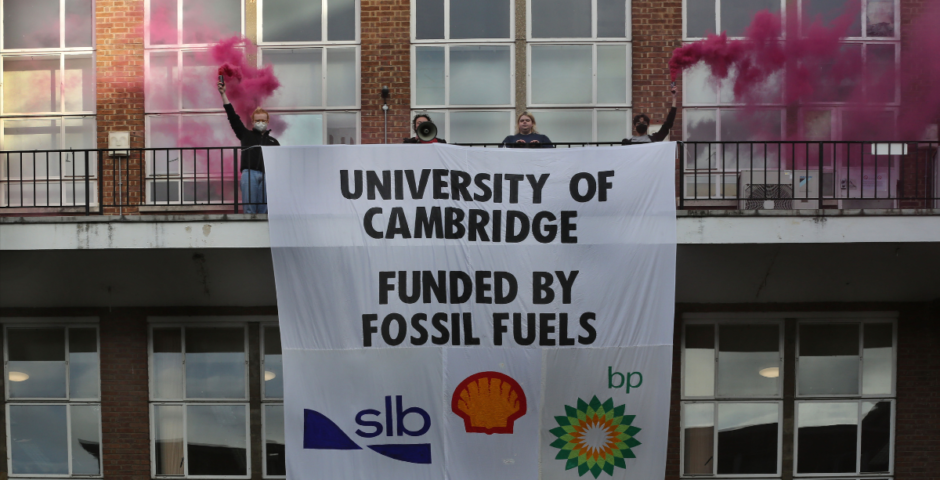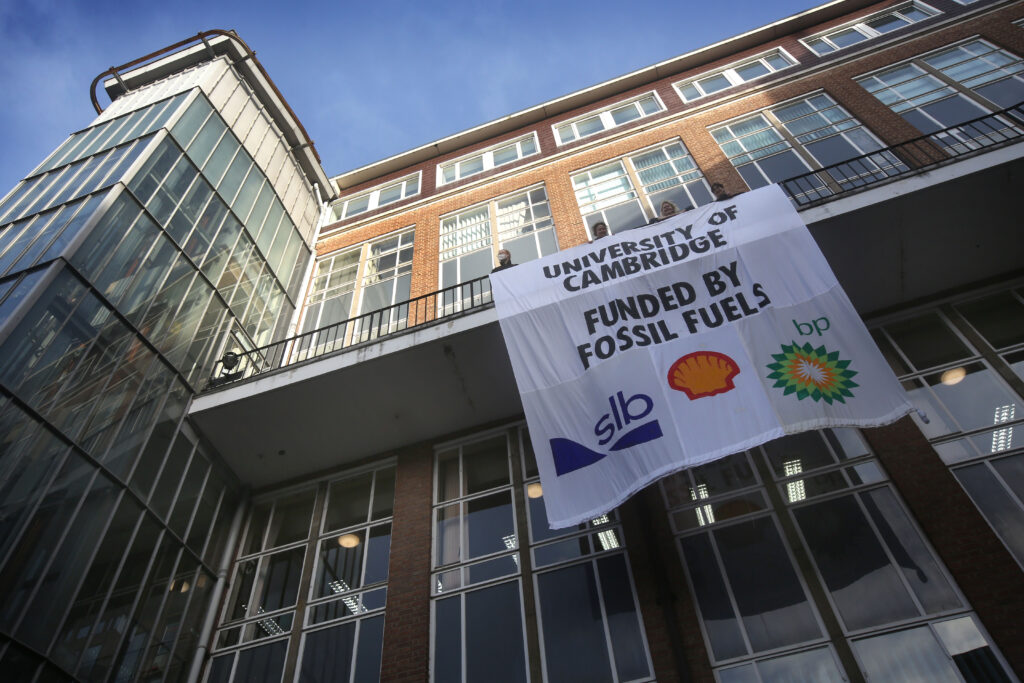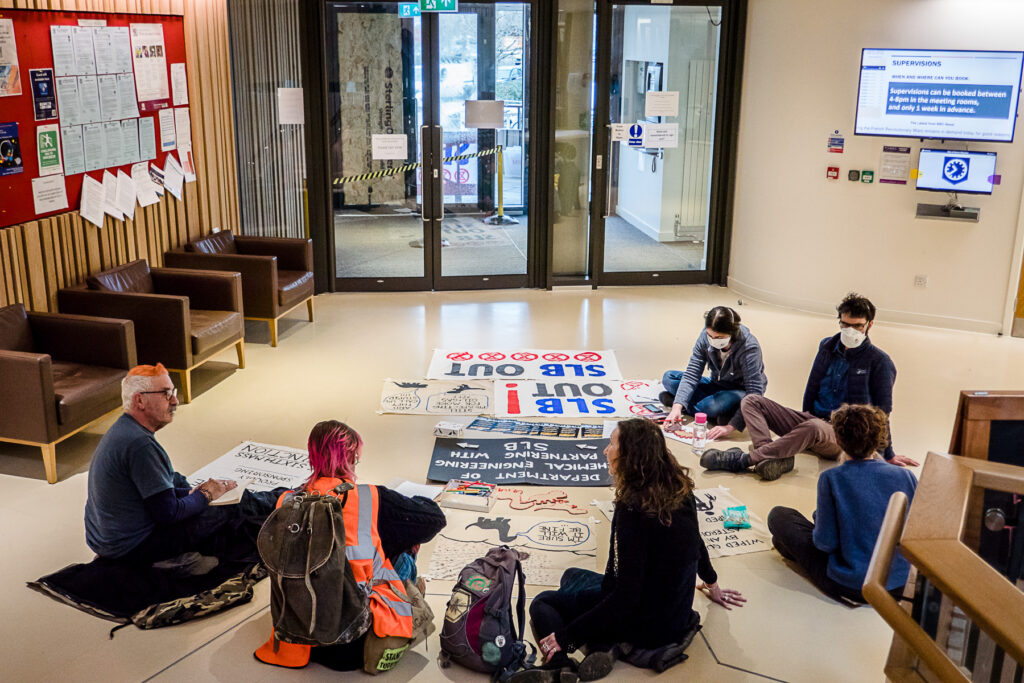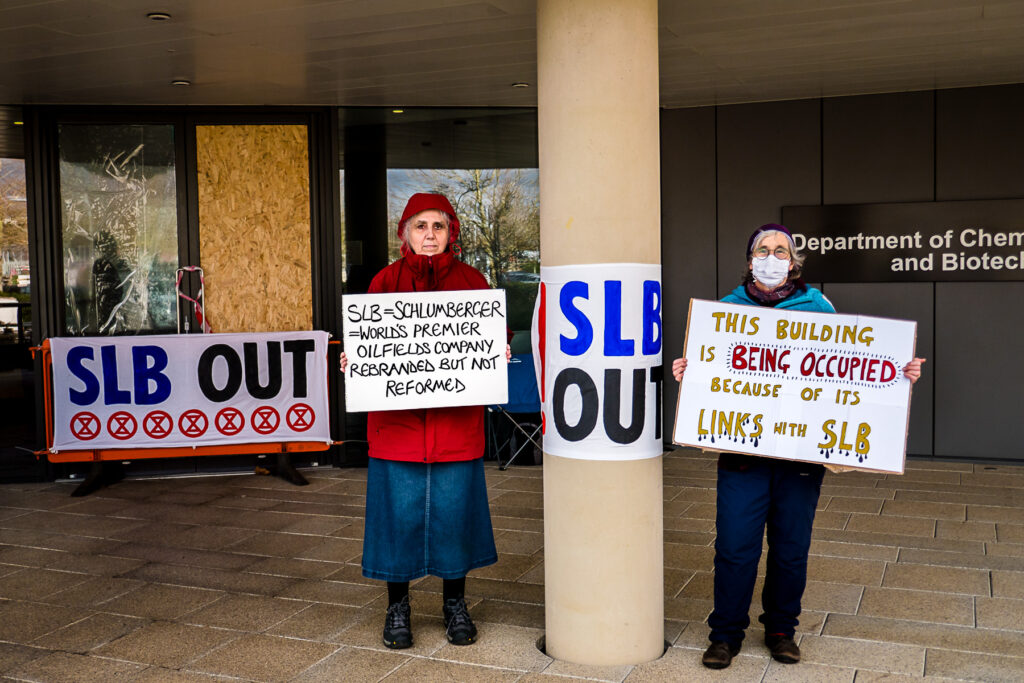
Extinction Rebellion occupies Cambridge engineering departments
Extinction Rebellion in Cambridge is calling for an end to fossil fuel collaboration
The Cambridge branch of Extinction Rebellion occupied the University of Cambridge’s engineering departments on Friday morning (17/2) in order to protest their further collaboration with companies, such as SLB (previously known as Schlumberger), who are the focus of this action.
This was a continuation of their Schlumberger Out campaign, which calls for the university to cut ties with the company.
The group have made their demands to both the university and specifically SLB clear, saying:
- Cut all ties: University of Cambridge stop collaborating with SLB
- Kick them out: SLB out of Cambridge
- Repair the harm: SLB stop profiting off planetary destruction and commit to climate reparations
The occupation lasted for two hours last Friday.
SLB in particular has close ties with the University, ranging from funded PhD programmes to a research centre on the West Hub. Here experiments have been conducted involving a Schlumberger drilling fluid at the Department of Chemical Engineering and a Department of Engineering project investigating solutions for vibration damage to drill strings. Both of these experiments directly contribute to the development of new oil and gas technology.
In the morning, the protesters climbed a balcony of the Engineering department, flying a banner with the message: “University of Cambridge: Funded by fossil fuels”, surrounded by smoke to draw attention to the action.

Members of Extinction Rebellion drop a banner at the Department of Engineering (Image credits: Martin Pope)
This was followed by a group occupation in the foyer of the Chemical Engineering Department, close to Schlumberger’s research facility on the University’s West Cambridge Site. There were also protesters stood outside the building to highlight and draw attention to the action inside.

Protestors occupied the Department of Chemical Engineering (Image credits: Derek Langley)
Ben, who took part in the occupation at the Department of Chemical Engineering said this on the topic of the University’s continued collaboration with these companies: “The University continues to work hand in glove with companies like Schlumberger, researching new ways to extract every last drop of oil and gas. […] We say to the University of Cambridge: do the right thing before it’s too late. To Schlumberger, we say: it’s time to repair the immense harm you have caused to our planet and to the communities devastated by your extractive technologies.”
Schlumberger recently rebranded itself as SLB and is the world’s largest oilfield services company. Schlumberger has played a role in instances of environmental and social harm by the fossil fuel industry, such as the drilling of the first commercial oil well in the Niger Delta.

Protestors outside the Chemical Engineering Department (Image Credits: Derek Langley)
Amelia Halls, a postgraduate student who took part in the banner action at the Department of Engineering, said: “As a leading educational institution, the University should be prioritising the health and wellbeing of its students, of humanity, and of the planet. Instead, it is content to line its pockets with money from companies that care more about profits than lives. We will not let this continue.”
XR Youth have also pointed to the list of companies that the Engineering Department has links with, these including SLB, and they have questioned how up to date said list is.
Following Friday’s occupation, XR Youth Cambridge held a rally at Senate House on Saturday (18/2), reminding the University of its moral obligation, according to these protestors, to cut ties with Schlumberger and its many other fossil fuel industry partners.
SLB provided The Cambridge Tab with the following statement: “We are definitely committed to playing our part in addressing climate change by reducing our own greenhouse gas emissions, and supporting our customers reduce theirs, through targets aligned with climate science and by meeting the demand for energy sustainably.
“SLB invests in a range of initiatives to achieve this. Our transition technologies are deployed for customers to support their climate ambitions and we have made a public commitment to achieving Net Zero greenhouse gas emissions by 2050. In addition SLB New Energy business is developing solutions for the future that are carbon neutral which we intend to expand as part of our strategic ambitions addressing climate change. The Cambridge Research centre is heavily involved in supporting the company’s commitment to Net Zero emissions, with many projects in New Energy activities.”
The University of Cambridge, and the Chemical Engineering and Engineering Departments, have been contacted for comment.
Featured image credits: Martin Pope









































